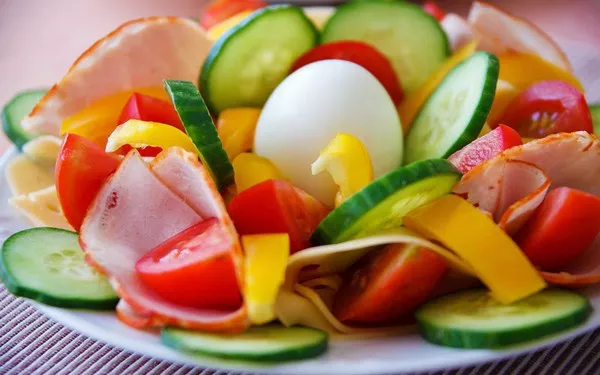The world of diets and nutrition is constantly evolving, and one approach that has gained significant attention is the high protein keto diet. Combining the principles of both a high-protein diet and the ketogenic (keto) diet, this approach aims to optimize weight loss, promote muscle growth, and enhance overall well-being. In this article, we will delve into the concept of a high protein keto diet, exploring its key features, potential benefits, food choices, and important considerations. By gaining a comprehensive understanding of this dietary approach, you can make informed decisions about whether it aligns with your health and fitness goals.
The Basics of a High Protein Keto Diet
1. Ketosis and Ketogenic Diet
A ketogenic diet is characterized by a significant reduction in carbohydrate intake and an increased consumption of healthy fats. This dietary shift forces the body to enter a state of ketosis, where it relies on ketones, a byproduct of fat metabolism, as its primary source of energy.
2. Incorporating Protein
A high protein keto diet builds upon the principles of a ketogenic diet by emphasizing a higher intake of protein. Protein is essential for muscle repair and growth, and it also provides a feeling of fullness, making it a valuable component of any weight loss plan.
Benefits of a High Protein Keto Diet
1. Weight Loss and Fat Loss
Combining a high protein intake with the metabolic state of ketosis can lead to effective weight and fat loss. Protein-rich foods promote satiety and help maintain lean muscle mass, while ketosis encourages the body to utilize stored fat for energy.
2. Muscle Building and Maintenance
Protein is the building block of muscles, and a high protein keto diet provides ample amino acids to support muscle growth and repair. This can be particularly beneficial for individuals engaged in strength training or seeking to preserve muscle mass while losing weight.
Food Choices on a High Protein Keto Diet
1. Protein Sources
Include lean protein sources such as poultry, lean cuts of meat, fish, eggs, and plant-based options like tofu and tempeh. These foods provide essential amino acids without contributing excessive carbohydrates.
2. Healthy Fats
Incorporate healthy fats from sources like avocados, nuts, seeds, and olive oil. These fats complement the ketogenic aspect of the diet and provide essential nutrients.
3. Low-Carb Vegetables
Choose non-starchy vegetables such as spinach, broccoli, cauliflower, and zucchini. These veggies are nutrient-dense and contribute to the overall fiber content of the diet.
Considerations and Precautions
1. Individualized Approach
A high protein keto diet may not be suitable for everyone. Factors such as medical conditions, activity levels, and personal preferences should be considered before making dietary changes.
2. Adequate Hydration
Ketosis can lead to increased fluid loss, so it’s crucial to stay hydrated by drinking plenty of water throughout the day.
3. Nutrient Balance
While protein is a focus of the diet, it’s important to maintain a balance of nutrients. Include a variety of foods to ensure you’re getting a wide range of vitamins and minerals.
Potential Drawbacks and Risks
1. Sustainability
The strict nature of a high protein keto diet may make it challenging for some individuals to adhere to in the long term. Consider your ability to sustain this eating pattern before making it a permanent lifestyle change.
2. Nutritional Deficiencies
Eliminating certain food groups, especially carbohydrate-rich ones, can lead to potential nutrient deficiencies if not carefully planned. Consult with a registered dietitian to ensure you’re meeting your nutritional needs.
3. Keto Flu
Some individuals may experience “keto flu” symptoms during the initial transition to a high protein keto diet. These symptoms can include fatigue, headaches, and irritability as the body adapts to ketosis.
See Also: Pros & Cons of a High-Protein Diet
Conclusion
In conclusion, a high protein keto diet combines the principles of a ketogenic diet with an emphasis on protein intake. This dietary approach offers potential benefits for weight loss, muscle building, and overall health. By focusing on lean protein sources, healthy fats, and low-carb vegetables, individuals can create balanced and satisfying meals. However, it’s important to approach this diet with careful consideration of individual needs, sustainability, and potential risks. As with any dietary change, consulting with a healthcare professional or registered dietitian is recommended to ensure that a high protein keto diet aligns with your health goals and is implemented safely and effectively.


